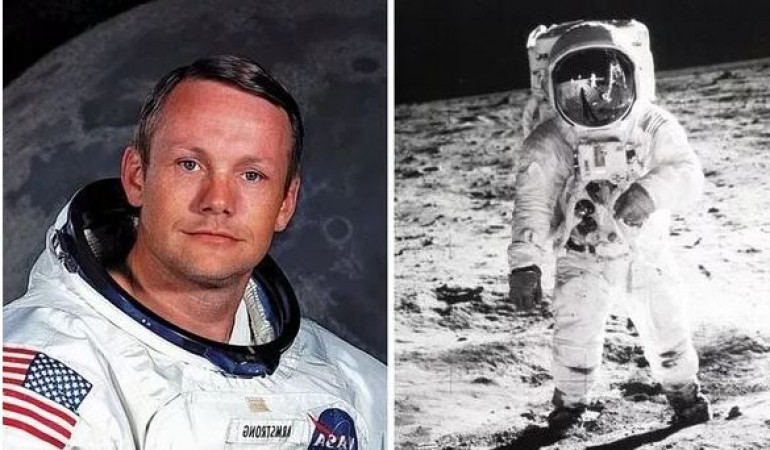
On July 21, 1969, humanity achieved a remarkable milestone that forever changed the course of history. At 02:56 GMT, American astronaut Neil Armstrong took his historic step onto the lunar surface, becoming the first person to walk on the Moon. This iconic moment, part of the Apollo 11 mission, marked a giant leap for mankind and remains etched in the collective memory as one of humanity's greatest achievements in space exploration.
The Apollo 11 mission had captured the world's attention as it set its sights on the Moon. After days of meticulous planning, the lunar module, piloted by Neil Armstrong, separated from the command module and descended towards the Moon's surface. Tensions were high at NASA's Mission Control Center in Houston, Texas, and around the globe as millions of people watched with bated breath.
As the lunar module touched down on the Moon's surface, Neil Armstrong famously radioed back to Mission Control with the words, "The Eagle has landed." It was a moment of immense relief and pride for the entire team that had worked tirelessly to make this audacious mission a reality.
A few hours later, the world held its breath once more as Neil Armstrong descended the ladder of the lunar module and set foot on the Moon's dusty terrain. His words echoed across the cosmos, "That's one small step for [a] man, one giant leap for mankind." These simple yet profound words encapsulated the magnitude of the achievement and the spirit of exploration that defines humanity.
Walking on the Moon was no easy feat. The astronauts had to contend with the Moon's low gravity, which made their movements feel like slow motion. Nevertheless, Armstrong and his fellow astronaut, Buzz Aldrin, planted the American flag on the lunar surface and conducted various experiments, including collecting rock samples and taking photographs. Their accomplishments paved the way for future lunar missions and expanded humanity's understanding of the cosmos.
The significance of the Apollo 11 mission goes beyond scientific and technological achievements. It was a moment of unity for humanity, transcending national boundaries and bringing people from all walks of life together in awe and wonder. Watching the grainy black-and-white images of Armstrong's historic steps, people around the world shared in the triumph of human ingenuity and determination.
Neil Armstrong's role as the first human on the Moon also exemplified the courage and dedication of the astronauts who risked their lives to explore the unknown. His achievement inspired generations of scientists, engineers, and dreamers, encouraging them to reach for the stars and explore new frontiers.
Today, as we remember the day when Neil Armstrong walked on the Moon, we celebrate the indomitable human spirit that drives us to explore, discover, and push the boundaries of our knowledge. The legacy of Apollo 11 lives on in the continued pursuit of space exploration, as we set our sights on returning to the Moon and venturing beyond to Mars and beyond.
So, on this anniversary of that fateful day in 1969, let us remember Neil Armstrong's historic steps on the lunar surface and the timeless inspiration it continues to provide. As we gaze up at the Moon, we are reminded of the boundless potential that lies within us to explore the universe and create a better future for all of humanity.
EU Considers Moving Military Training Centers to Ukraine
Former Venezuelan Spy Chief Headed to US to Face Drug Charges
'Eternal gratitude' is extended to the Russians by the head of British intelligence